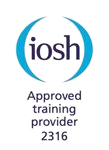Home » Help & Advice » Legal Responsibilities
Legal Responsibilities
Whether you are an installer, electrician, business owner, school, or homeowner, it’s vital to understand your legal responsibilities to ensure every gate is safe and compliant. The following guidance outlines the key legislation that applies to each group, helping you meet your duty of care and avoid potential legal or safety risks.
What are the legal requirements for gate safety?
Understanding your legal obligations is essential when it comes to the installation, maintenance, and ownership of automated gates. Every party involved – from installers to property owners – has a duty of care to ensure that gates are safe, compliant, and do not pose a risk to others.
Below is an overview of the key legislation that applies to different groups:
Installers
Any installer responsible for fitting a new automated gate or maintaining an existing one has a clear duty of care to ensure the gate is both safe and legally compliant.
Relevant legislation includes:
- Supply of Machinery (Safety) Regulations 2008
- Health and Safety at Work Act 1974
- Workplace (Health, Safety and Welfare) Regulations 1992
- Provision and Use of Work Equipment Regulations 1998
Electricians
Electricians working on electric gates must ensure that all electrical work is compliant and safe in accordance with industry standards and legal requirements.
Relevant legislation includes:
- Supply of Machinery (Safety) Regulations 2008
- 18th Edition BS 7671 – IET Wiring Regulations
- Health and Safety at Work Act 1974
- Workplace (Health, Safety and Welfare) Regulations 1992
- Provision and Use of Work Equipment Regulations 1998
Homeowners
If you own or manage a residential complex (for example, landlords, managing agents, or housing associations), you are subject to health and safety legislation and must ensure that all gates on the premises are safe.
Relevant legislation includes:
- Supply of Machinery (Safety) Regulations 2008
- Health and Safety at Work Act 1974
- Workplace (Health, Safety and Welfare) Regulations 1992
- Provision and Use of Work Equipment Regulations 1998
For gates installed on privately owned residential property, the Health and Safety at Work Act does not apply.
However, the installer must still ensure that any work complies fully with:
- Supply of Machinery (Safety) Regulations 2008
- Health and Safety at Work Act 1974
- The Workplace (Health, Safety and Welfare) Regulations 1992
- Provision and Use of Work Equipment Regulations 1998
The gate owner has a duty under The Occupiers Liability Acts 1957 and 1984 to ensure no one can be injured on their property. This also means that all gates in residential situations must still be safe and compliant, all gates MUST comply with the legislation regardless of the application or use.
Note if you regularly have professionals coming to your home to work, for example if you employ gardening or childcare help, your home would then constitute a place of work and you therefore have a requirement to ensure the safety of these “workers”.
Gate Owners of Commercial Premises
Owners and operators of automated gates on commercial premises have a duty to ensure that gates are properly maintained and pose no risk to staff, visitors, or the public.
Relevant legislation includes:
- Health and Safety at Work Act 1974
- Workplace (Health, Safety and Welfare) Regulations 1992
- Provision and Use of Work Equipment Regulations 1998
- Supply of Machinery (Safety) Regulations 2008
Schools
Schools are responsible for ensuring that all gates within the premises meet legal safety standards. Gates must be regularly checked and maintained to prevent accidents.
Relevant legislation includes:
- Supply of Machinery (Safety) Regulations 2008
- Health and Safety at Work Act 1974
- Workplace (Health, Safety and Welfare) Regulations 1992
- Provision and Use of Work Equipment Regulations 1998
Need further guidance?
If you have any questions about your legal responsibilities, our team is on hand to help.
📧 Email: info@gate-safe.org
📞 Telephone: 01303 840117
If you work with electric gates, taking joining our IOSH-approved Gate Safe Training. This comprehensive course explores legal compliance in greater depth and covers all aspects of gate safety to help you stay informed and compliant.
Find out more about our training here » https://www.gate-safe.org/training/
